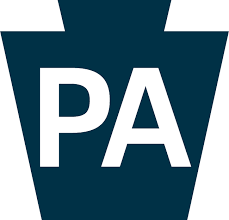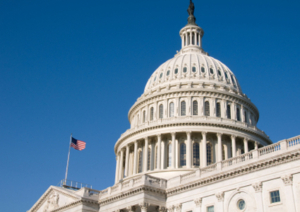MACPAC Meets
The Medicaid and CHIP Payment and Access Commission met for two days last week in Washington, D.C.
The following is MACPAC’s own summary of the sessions.
 The February 2020 MACPAC meeting opened with a continuation of MACPAC’s examination of Medicaid’s role in maternal health, when Medicaid officials from Michigan, New Jersey, and North Carolina joined the Commission to discuss how their states are addressing maternal morbidity and mortality.* The Commission plans to include a chapter on maternal health in its June 2020 report to Congress. Commissioners later turned their attention to policy options for improving enrollment in the Medicare Savings Program.
The February 2020 MACPAC meeting opened with a continuation of MACPAC’s examination of Medicaid’s role in maternal health, when Medicaid officials from Michigan, New Jersey, and North Carolina joined the Commission to discuss how their states are addressing maternal morbidity and mortality.* The Commission plans to include a chapter on maternal health in its June 2020 report to Congress. Commissioners later turned their attention to policy options for improving enrollment in the Medicare Savings Program.
The Commission later took a deep dive into value-based payment in Medicaid managed care. This three-part session began with findings from a series of interviews with state officials, managed care organizations, and other stakeholders aimed at understanding how states use managed care to promote payment reform, conducted by MACPAC contractor Bailit Health. Then, representatives from three of these organizations shared their reactions to the findings and talked about how value-based payment models are working in practice.* The session concluded with Commissioners’ perspectives on the study’s findings and the panelists’ reactions to them, and possible next steps.
The final session of the afternoon continued a line of inquiry begun at the October 2019 meeting: third-party liability coordination between Medicaid and TRICARE. MACPAC estimates that almost 1 million Medicaid enrollees have primary coverage through TRICARE, which provides health benefits for military personnel, military retirees, and their dependents. Commissioners explored making recommendations in the June report to improve coordination between the two programs.
On Friday, the Commission returned to the theme of improving care for dually eligible beneficiaries, looking more closely at the rise of so-called dual-eligible special needs plan (D-SNP) look-alikes and how changes in the Medicare Advantage market are affecting efforts to integrate care. Commissioners also reviewed a rule proposed in February that would, among other things, restrict the growth of look-alikes.
Following that session, the Commission discussed draft recommendations to improve integration of Medicare and Medicaid benefits for dually eligible beneficiaries. The February meeting wrapped up with a discussion of a forthcoming rule expected to affect the Medicaid eligibility determination process.
Supporting the discussion were the following briefing papers:
- State Medicaid Initiatives to Improve Maternal Health
- Improving Participation in the Medicare Savings Programs: Decisions on Draft Recommendations for the June Report to Congress
- State Strategies to Promote the Use of Value-Based Payments in Medicaid Managed Care
- Medicaid and TRICARE: Third-Party Liability Coordination
- How Changes in the Medicare Advantage Market Are Affecting Integration of Care for Dually Eligible Beneficiaries: Analysis and Comments on Proposed Rule
- Improving Integrated Care for Dually Eligible Beneficiaries: Decisions on Recommendations to be Included in June Report to Congress
- Forthcoming Rule on Program Integrity and Eligibility Determination Processes
Because they serve so many Medicaid and CHIP patients – more than the typical hospital – MACPAC’s deliberations are especially important to Pennsylvania safety-net hospitals.
MACPAC is a non-partisan legislative branch agency that provides policy and data analysis and makes recommendations to Congress, the Secretary of the U.S. Department of Health and Human Services, and the states on a wide variety of issues affecting Medicaid and the State Children’s Health Insurance Program. Find its web site here.
 Block grants, through what has been named the Healthy Adult Opportunity program, also pose a threat, with Fitch explaining that
Block grants, through what has been named the Healthy Adult Opportunity program, also pose a threat, with Fitch explaining that Under federal law, CMS must publish a notice declaring its intention to collect such data and seek input from stakeholders. For this particular notice, stakeholders have until March 9 to respond.
Under federal law, CMS must publish a notice declaring its intention to collect such data and seek input from stakeholders. For this particular notice, stakeholders have until March 9 to respond. The proposed budget, presented to the state legislature earlier this week, includes the following new initiatives:
The proposed budget, presented to the state legislature earlier this week, includes the following new initiatives: Last August a new Department of Homeland Security regulation took effect that authorized the federal government to reject immigrants’ applications for visas and green cards if their financial situation and employment prospects suggested that they might become a “public charge” and dependent on government safety-net programs like Medicaid and food stamps. A number of groups sued to prevent the rule’s implementation and federal courts imposed an injunction against its enforcement but now the Supreme Court has lifted the last of these injunctions.
Last August a new Department of Homeland Security regulation took effect that authorized the federal government to reject immigrants’ applications for visas and green cards if their financial situation and employment prospects suggested that they might become a “public charge” and dependent on government safety-net programs like Medicaid and food stamps. A number of groups sued to prevent the rule’s implementation and federal courts imposed an injunction against its enforcement but now the Supreme Court has lifted the last of these injunctions. The Prescription Drug Pricing Reduction Act includes a provision that would eliminate two years of Affordable Care Act-mandated cuts in the allocation of federal money to the states for Medicaid disproportionate share hospital payments (Medicaid DSH). Those cuts have been delayed several times by Congress but were scheduled to begin in October of 2019 and run through federal FY 2025, only to be delayed again twice by continuing resolutions adopted by Congress to fund the federal government in the absence of enacted appropriations bills.
The Prescription Drug Pricing Reduction Act includes a provision that would eliminate two years of Affordable Care Act-mandated cuts in the allocation of federal money to the states for Medicaid disproportionate share hospital payments (Medicaid DSH). Those cuts have been delayed several times by Congress but were scheduled to begin in October of 2019 and run through federal FY 2025, only to be delayed again twice by continuing resolutions adopted by Congress to fund the federal government in the absence of enacted appropriations bills. According to the bond rating agency, non-profit hospitals are seeing growing amounts of bad debt as they struggle, often unsuccessfully, to collect from patients whose high deductibles leave them on the hook for meaningful amounts of care.
According to the bond rating agency, non-profit hospitals are seeing growing amounts of bad debt as they struggle, often unsuccessfully, to collect from patients whose high deductibles leave them on the hook for meaningful amounts of care.